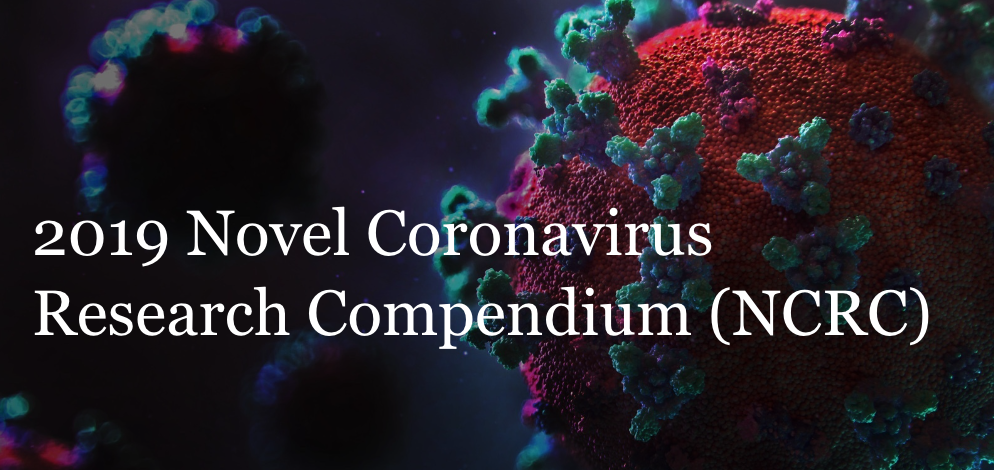Virological and serological kinetics of SARS-CoV-2 Delta variant vaccine breakthrough infections: a multicentre cohort study
This article has been Reviewed by the following groups
Discuss this preprint
Start a discussion What are Sciety discussions?Listed in
- Evaluated articles (ScreenIT)
- Evaluated articles (NCRC)
Abstract
Article activity feed
-
-

Our take
This study from Singapore, available as a preprint and thus not yet peer reviewed, found that patients who were fully vaccinated with an mRNA vaccine had lower risk of severe outcomes after SARS-CoV-2 infection with the variant of concern B.1.617.2 (Delta). The study also seems to suggest that vaccinated patients clear viral load at a faster rate compared to unvaccinated infected patients.
Study design
retrospective-cohort
Study population and setting
Between April 1 and June 14, 2021, 218 patients hospitalized with the Delta variant were identified across the 5 study sites in Singapore, of whom 130 were unvaccinated, and 71 were fully (2 dose) mRNA vaccinated patients and included in the analyses. Those were not fully vaccinated or who did not receive an mRNA vaccine (n=17) were excluded from …
Our take
This study from Singapore, available as a preprint and thus not yet peer reviewed, found that patients who were fully vaccinated with an mRNA vaccine had lower risk of severe outcomes after SARS-CoV-2 infection with the variant of concern B.1.617.2 (Delta). The study also seems to suggest that vaccinated patients clear viral load at a faster rate compared to unvaccinated infected patients.
Study design
retrospective-cohort
Study population and setting
Between April 1 and June 14, 2021, 218 patients hospitalized with the Delta variant were identified across the 5 study sites in Singapore, of whom 130 were unvaccinated, and 71 were fully (2 dose) mRNA vaccinated patients and included in the analyses. Those were not fully vaccinated or who did not receive an mRNA vaccine (n=17) were excluded from the study. A subset of 69 fully vaccinated and 45 unvaccinated patients further had serologic data on record.
Summary of main findings
Those in the vaccine-breakthrough group tended to be older (56 years vs. 39.5 years) than the unvaccinated group. Fully vaccinated breakthrough patients in the study had fewer symptoms (28% asymptomatic vaccinated vs. 9% asymptomatic unvaccinated) and better clinical outcomes (fewer cases with pneumonia, need for oxygen and ICU admissions). Those who were vaccinated had similar peak Delta SARS-CoV-2 viral load but cleared virus at a faster rate compared to unvaccinated patients. In the subset of patients with serologic data, vaccinated breakthrough cases had earlier, more robust boosting of anti-spike SARS-CoV-2 protein antibodies than unvaccinated patients.
Study strengths
This study is based on real-world evidence of viral kinetics in mRNA vaccine-breakthrough and unvaccinated patients after a SARS-CoV-2 Delta infection.
Limitations
Although the manuscript states Singapore has a system where all identified COVID-19 cases, regardless of symptom status, are admitted to the hospital for evaluation, it is not clear where these cases are identified in the context of the study (e.g., whether they are representative of the Singapore population with the Delta variant infection or whether there are specific subgroups that tend to test more and end up in the hospital, especially in the asymptomatic cases). It is also not clear how they accounted for immunocompromised patients, especially in the vaccine-breakthrough group. As such, the viral kinetics mapped by the study may not be representative of all cases, especially undetected cases that may be more likely asymptomatic. Also, PCR ct values were used as a surrogate marker of viral load. Since only the viral kinetics of mRNA vaccines were examined, these findings cannot be generalized to other COVID-19 vaccine types. It is also not clear whether there were differences in viral kinetics of Moderna versus Pfizer vaccine breakthrough cases or in older versus younger adults since the subgroup analyses were not shared.
Value added
This study suggests that mRNA vaccinated patients with breakthrough COVID-19 infection from the Delta variant had similar viral loads to unvaccinated patients at time of diagnosis but cleared the virus more quickly than unvaccinated cases.
-

SciScore for 10.1101/2021.07.28.21261295: (What is this?)
Please note, not all rigor criteria are appropriate for all manuscripts.
Table 1: Rigor
Ethics Consent: Ethical approval: Written informed consent was obtained from study participants of the multi-centre study approved by National Healthcare Group Domain Specific Review Board (NHG-DSRB) (Study Reference 2012/00917).
IRB: Ethical approval: Written informed consent was obtained from study participants of the multi-centre study approved by National Healthcare Group Domain Specific Review Board (NHG-DSRB) (Study Reference 2012/00917).Sex as a biological variable not detected. Randomization For serial Ct values, we fitted a generalized additive mixed model (GAMM) with a random intercept by patient. Blinding not detected. Power Analysis not detected. Table 2: Resources
Antibodies Sentences Resources cP… SciScore for 10.1101/2021.07.28.21261295: (What is this?)
Please note, not all rigor criteria are appropriate for all manuscripts.
Table 1: Rigor
Ethics Consent: Ethical approval: Written informed consent was obtained from study participants of the multi-centre study approved by National Healthcare Group Domain Specific Review Board (NHG-DSRB) (Study Reference 2012/00917).
IRB: Ethical approval: Written informed consent was obtained from study participants of the multi-centre study approved by National Healthcare Group Domain Specific Review Board (NHG-DSRB) (Study Reference 2012/00917).Sex as a biological variable not detected. Randomization For serial Ct values, we fitted a generalized additive mixed model (GAMM) with a random intercept by patient. Blinding not detected. Power Analysis not detected. Table 2: Resources
Antibodies Sentences Resources cPass™ detects total neutralizing antibodies targeting the viral spike protein receptor-binding domain [18]. viral spike protein receptor-binding domain [ 18suggested: NoneSoftware and Algorithms Sentences Resources As part of active genomic surveillance, whole genome sequencing (WGS) by National Public Health Laboratory is performed for all patients in Singapore with SARS-CoV-2 detected by RT-PCR with a Ct value less than 30. WGSsuggested: NoneData analyses were performed using Stata Release 15 (StataCorp, College Station, TX) and R version 3.6.2 (R Foundation for Statistical Computing, Vienna, Austria). StataCorpsuggested: (Stata, RRID:SCR_012763)Ethical approval: Written informed consent was obtained from study participants of the multi-centre study approved by National Healthcare Group Domain Specific Review Board (NHG-DSRB) (Study Reference 2012/00917). National Healthcaresuggested: NoneResults from OddPub: We did not detect open data. We also did not detect open code. Researchers are encouraged to share open data when possible (see Nature blog).
Results from LimitationRecognizer: We detected the following sentences addressing limitations in the study:There are several limitations to our study. Firstly, we only compared vaccine-breakthrough infections with unvaccinated COVID-19 patients. We did not study vaccinated individuals who had similar exposure risk but did not develop COVID-19 infection. We thus could not evaluate vaccine efficacy against asymptomatic infection. We also did not have detailed epidemiologic data to study the effect of vaccination on preventing secondary transmission. Secondly, we could only obtain serologic tests after infection since patients were recruited after confirmation of infection. While active contact tracing and case finding in Singapore resulted in early identification of most COVID-19 cases, the first available serologic result was at a median of 2 (IQR:1-3) days of illness and antibody levels are likely to already have been boosted by natural infection. We thus could not evaluate the underlying immunologic mechanisms behind vaccine-breakthrough infection, e.g., diminished neutralizing antibody level or impaired cellular immunity. Further study should compare similarly exposed vaccinated individuals who develop breakthrough infection with those who do not, to elucidate the underlying drivers of susceptibility, which may enlighten us on how to optimize protection (e.g., through enhanced/boosted dosing schedules). Thirdly, PCR testing was not standardized in a centralized laboratory, and instead conducted at each centre using different validated commercial assays. Ct values are only a surr...
Results from TrialIdentifier: No clinical trial numbers were referenced.
Results from Barzooka: We did not find any issues relating to the usage of bar graphs.
Results from JetFighter: We did not find any issues relating to colormaps.
Results from rtransparent:- Thank you for including a conflict of interest statement. Authors are encouraged to include this statement when submitting to a journal.
- Thank you for including a funding statement. Authors are encouraged to include this statement when submitting to a journal.
- No protocol registration statement was detected.
Results from scite Reference Check: We found no unreliable references.
-


